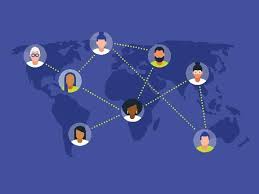In today’s globalized business environment, the ability to effectively manage and train culturally diverse teams is crucial. It fosters innovation, enhances problem-solving, and drives competitive advantages. However, leading such teams comes with unique challenges that require nuanced understanding and strategic adjustments. This detailed guide explores the valuable lessons and insights gained from experiences with global teams.
Key Insights from Managing and Training Culturally Diverse Teams
Importance of Cultural Awareness:
Understanding and respecting cultural differences is foundational in managing diverse teams. Leaders must be culturally competent, which involves not only an awareness of other cultures’ norms and values but also an understanding of how these can impact workplace dynamics. Regular cultural sensitivity training can equip team members with the knowledge and skills to interact respectfully and effectively with colleagues from various backgrounds.
Effective Communication Strategies:
Cultural diversity can lead to communication barriers, which might manifest as differences in direct versus indirect communication styles, varying levels of comfort with public disagreement, or different approaches to hierarchy and authority. To address these challenges, it’s important to establish clear communication protocols, encourage the use of simple language, and facilitate regular feedback sessions. Utilizing visual aids and translation services can also help in ensuring that all team members understand and are aligned with team goals.
Flexibility in Leadership Styles:
One size does not fit all when it comes to leadership in culturally diverse settings. Leaders may need to adapt their style to better suit the cultural preferences of their team members. This might mean adopting a more hierarchical approach with team members from cultures that value structured authority, or a more collaborative style with those from cultures that prioritize team consensus.
Building Trust Across Cultures:
Trust is a critical element in the success of any team but building it can be more challenging in a culturally diverse context. Leaders can foster trust by creating opportunities for personal interaction and bonding beyond work-related activities. Celebrating cultural holidays, organizing international food days, and facilitating team-building exercises that highlight cultural knowledge and appreciation can strengthen interpersonal relationships.
Inclusive Decision-Making:
Involving team members in decision-making processes can enhance their commitment and satisfaction, particularly in diverse teams. This inclusion ensures that a variety of perspectives are considered, which can lead to more innovative solutions. It’s important for leaders to actively solicit input from all members and recognize contributions equally, ensuring that no voices are marginalized.
Tailored Training and Development:
Training programs should be designed to meet the diverse learning styles and needs of global teams. This might involve offering training in multiple languages, considering different educational backgrounds, or integrating various educational technologies that cater to a wide range of preferences. Additionally, incorporating case studies and examples from different cultural contexts can make learning more relatable and effective.
Recognizing and Celebrating Diversity:
Actively celebrating diversity within the team can enhance morale and show an authentic appreciation for different cultures. This can be achieved through recognizing cultural festivals, sharing success stories of diverse team members, and encouraging the exploration of different cultural perspectives in project work.
Conclusion
Leading and training globally diverse teams is not merely about managing differences but leveraging them for greater creativity, broader insights, and enhanced problem-solving. The insights gleaned from these experiences underscore the importance of adaptability, open communication, and continuous learning in cultivating a thriving multicultural team environment.

